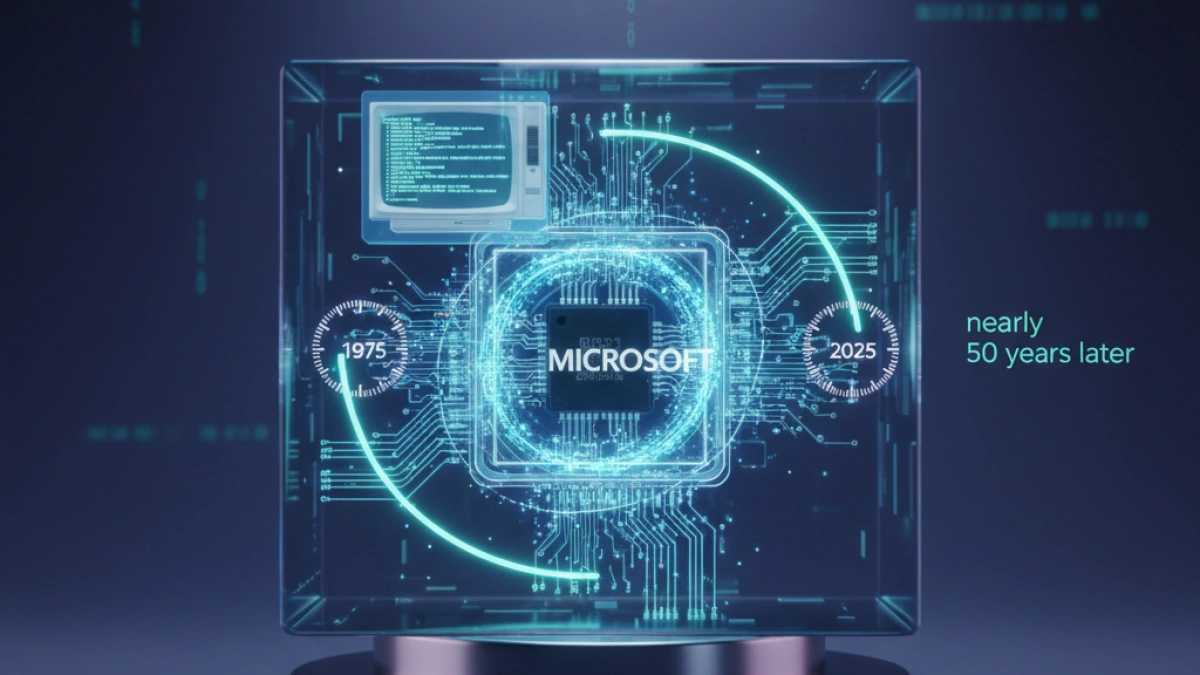Almost five decades after its initial release, Microsoft has announced the availability of 6502 BASIC as open source. This historic software, which plays a fundamental role in the history of computing, can now be fully explored through a repository on GitHub, allowing programmers, enthusiasts, and nostalgics to analyze and experiment with it.
A Look at the History of 6502 BASIC
The released software, officially known as Microsoft BASIC Version 1.1 for the 6502 microprocessor, was created in 1976, one year after Bill Gates and Paul Allen introduced the BASIC interpreter for Intel's 8080 microprocessor, the first product from Microsoft as a company. 6502 BASIC was developed as a port of Microsoft BASIC for devices using the 6502 CPU from MOS Technology, a microprocessor that became one of the most widely used in personal computers and video game consoles during the latter half of the seventies and throughout the eighties.
Commodore was the first company to license 6502 BASIC in 1977 for $25,000, enabling this development to reach flagship devices such as the Commodore PET, the Commodore VIC-20, and the Commodore 64. Moreover, this port served as the foundation for Applesoft BASIC, used as the BASIC interpreter in the Apple II, replacing Steve Wozniak's Integer BASIC.
Importance of the 6502 Processor and Its Legacy
The MOS Technology 6502 was not only fundamental to the development of many iconic devices of the era, such as the Atari 2600, the Atari 800XL, and the NES, but it also kept interest in 6502 BASIC alive over the years. Now that Microsoft has released this software as open source, it paves the way for us to develop new projects that bring old hardware back to life in a more accessible manner.
Thanks to modern technologies like FPGAs (Field Programmable Gate Arrays), it is possible to recreate the functionality of these original machines using contemporary hardware without losing backward compatibility with essential components, such as controllers or cartridges. This results in a more authentic approach than simply using software emulators.
Technical Features of 6502 BASIC
The release of 6502 BASIC as open-source software is not just a nod to nostalgia; it also provides a robust tool for those looking to explore retro programming. This BASIC interpreter includes a complete implementation of the language, as well as support for floating-point arithmetic, functions and mathematical operations, and input and output capabilities, among other technical features.
Access to this software under the open-source license will allow developers and researchers to deepen their understanding and create applications or adaptations that leverage the legacy of 6502 BASIC.
How to Access 6502 BASIC
Those interested in experimenting with 6502 BASIC can find the complete repository published by Microsoft on GitHub, where it is available for study and use. This represents not only a step towards preserving the history of computing but also an invitation for a new audience to rediscover software that, despite its age, remains relevant in the current development community.
Final Thoughts
Microsoft's decision to release 6502 BASIC as open source underscores the importance of preserving and reusing software that has been fundamental in the evolution of technology. This event not only celebrates Microsoft’s history but also opens new opportunities for learning and innovation in the field of retro programming.
For those who wish to continue exploring the history of computing and related topics, you are invited to visit more content on this blog.




















